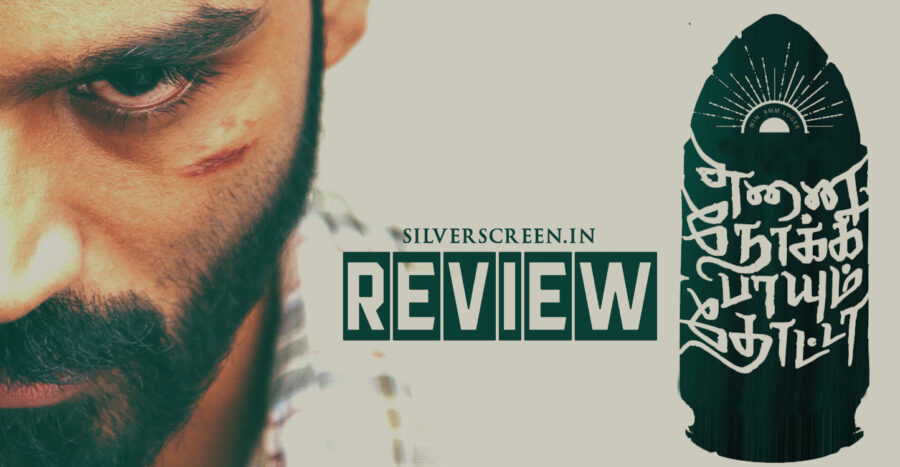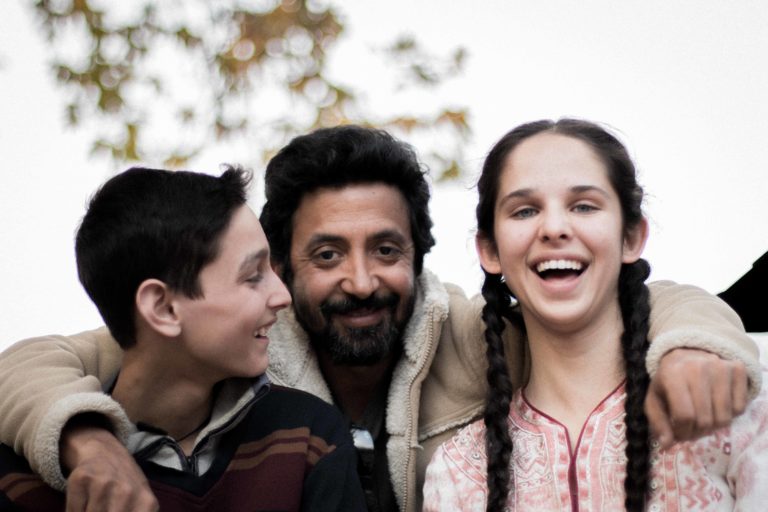Director: Gautham Vasudev Menon
Cast: Megha Akash, Dhanush
The most surprising thing about Gautham Menon’s ENPT (which at last released today after several false alarms), is how not dated the film feels. Despite the years that have rolled by since the film was wrapped up, there’s enough finesse in the craft to make it look like it was made no less than a year ago. It has better craft than several films that came out recently. I’ll be honest, I go to the movies every week, fully expecting to shrink and cringe (maybe also be enraged) for at least a few minutes. The good news? I didn’t cringe at the leads in this film. The bad? I did cringe. (More on this later.)
Dhanush as Raghu looks beguilingly young and the man can really emote, and Megha Akash as Lekha has superb screen presence. And like all of Menon’s women, she has only the main man’s utter and complete adoration. (I’d love to see a Menon movie in which the man and woman have been around each other enough to occasionally not like each other. To fight. What will it be like?)
Back to ENPT… the pre-interval part of the movie can compete with the best of K-Dramas’ romance portions (and that’s no small feat). Tight close-ups, well-lit frames, well dressed up, and groomed, buff, shiny people. Men and women who seem at ease around each other. However, Gautam Menon’s voice looms large even if it’s Dhanush who’s doing the voice over. While in some places the voice-over turned proceedings a little enjoyable I admit (like this funny Pokiri reference and the occasional funny jibe), at other times it felt a bit too tiring to follow. As if Menon was too worried to let us think about the film. He was constantly editorialising. It’s a curious thing. Made one wonder if he was thinking of what could be perceived as flaws in the film, and then went about clarifying with this voice-over.
When Lekha and Raghu are alone in her caravan’s toilet, for instance, she’s upset. In the voice-over, you hear Raghu’s conflict. “I am not this horrible guy who will take advantage of a girl when she’s down.” Then she initiates the kiss. He seems almost relieved. Raghu is on the edge from the beginning wondering what the right thing to do is. Earlier in the film, when Lekha asks for a lift, he sends his friend with her. He’s unsure. This tentativeness is interesting. There’s also an interesting skewering of power balance between the two of them.
Post interval though, the film becomes every cop movie ever, with police-criminal nexus, a shady producer, a surprise cameo from Sasikumar — it was a relief seeing him in a role like this. Menon’s attempt at showcasing the urban as well-meaning, innocent even, in the midst of imagery we are constantly bombarded with, polarising us, is a welcome change. What’s grating though is the potty-mouthed, rape fetishising villain (per usual) in this universe. We see Lekha through Raghu’s eyes, so we see her only as ‘divine’ (that’s what he thinks of her). She’s forced into acting (sort of like Rajini-starrer Priya that was based on Sujatha’s pulp Ganesh-Vasanth novel). And then we also hear what this villain, the man who’s groomed her like this goat for the butcher’s knife, wants to do to her (here I cringed). There’s a #MeToo meets the infamous Pollachi incident, in the mix… This is where it all gets a bit much.
Recommended
Trying to tell a simpler story, between an everyman and a reluctant actor with commitments, may have made for better human drama. Or telling us a good cop vs bad cop story in which a young couple get unwittingly caught, from the start would have made for a more immersive experience. Instead, ENPT feels like a convenient replay of all the things Menon is good at. The result as a whole is good enough to warrant our attention. Though I doubt it will make it to any list on the best of this decade.
The Enai Noki Paayum Thota review is a Silverscreen.in original article. It was not paid for or commissioned by anyone associated with the film. Silverscreen.in and its writers do not have any commercial relationship with movies that are reviewed on the site.



